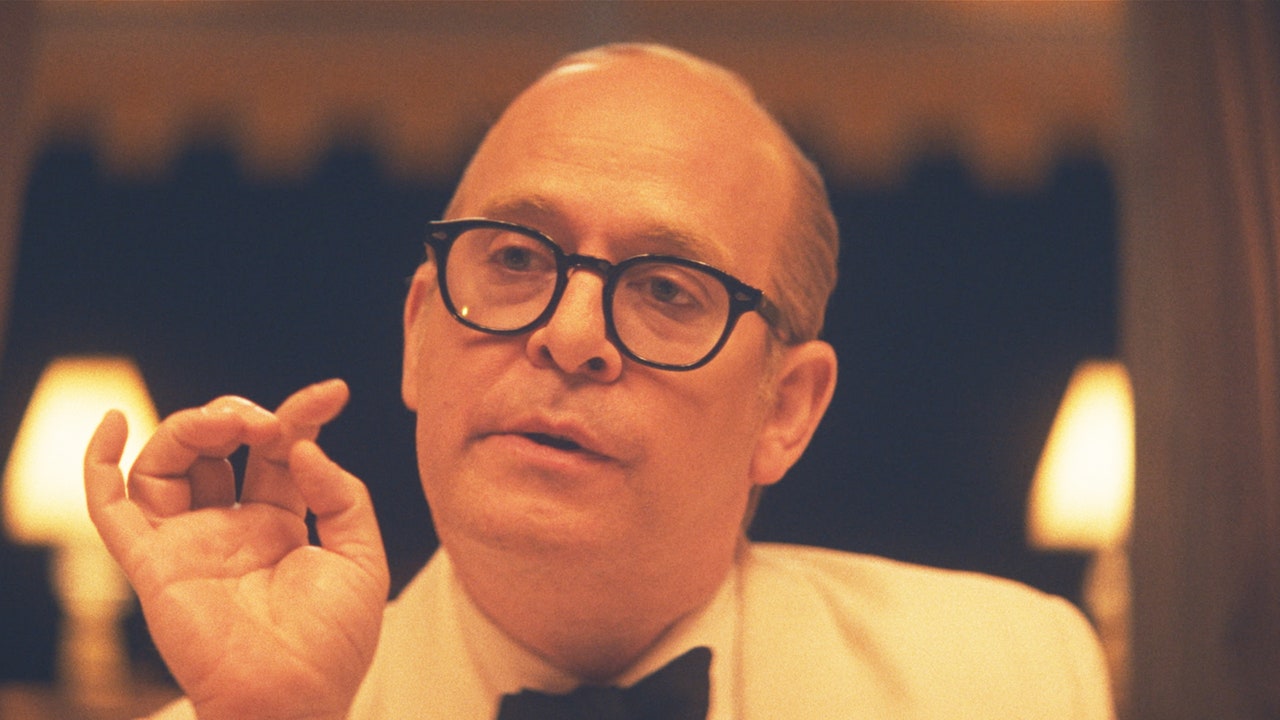Though the rise and fall of Truman Capote has been the subject of two major biographical movies and multiple books, most of these focus on his ascent. And why not? It’s a delicious tale: small-town Southern boy—openly gay at a time when this was virtually unknown—becomes one of America’s most celebrated and glamorous writers at the age of 23, then a talk show fixture and darling of high society.
But Feud: Capote vs. The Swans, the second installment in Ryan Murphy’s Feud anthology—written by playwright Jon Robin Baitz and mostly directed by Gus Van Sant—takes another approach, dwelling on the writer’s debauched slide toward ruination. The descent begins after he alienates the powerful society women he dubbed his “swans” by writing about their lives in a lightly-fictionalized short story called “La Côte Basque, 1965.”
“I don’t know if as an artist I can live within the same codes of good manners,” Capote declares in Feud: Capote vs. The Swans—but his socialite friends’ lives depend on maintaining a facade of elegance and privacy. Already suffering from writer’s block and addiction issues, Capote (played by Tom Hollander) experiences his estrangement from close confidantes like Babe Paley (Naomi Watts), Slim Keith (Diane Lane), and Lee Radziwill (Calista Flockhart) as a kind of living death.
Baitz grew up in the post-swans era, after the glory years of In Cold Blood and Breakfast at Tiffany’s. By the early 1980s, Capote had become a bloated figure slurring his words on television. But he remained enough of an icon that Baitz recalls the excitement of once passing Capote on a Manhattan street. After reading the 2021 book Capote’s Women, Baitz sent Murphy a note. The two had tried to develop a previous season of Feud together—“a very Ken Russell-ish take on Diana and Charles that was batshit crazy and ambitious,” Baitz says with a grin. This time, Baitz was delighted to hear that Murphy had already optioned the Capote book and was eager to collaborate.
“Ryan had brilliant ideas that we could organize our thoughts around, and the process became a very long conversation about friendship and loyalty,” Baitz says. “I think we both were able to directly relate to all the parties’ pain and wrote it from that perspective: pain for Truman, pain for those women, pain for the squandering of friendships, for wasting yourself on the wrong things. All of that.”
Capote lived by the Mark Twain maxim, “Never let the truth get in the way of a good story,” weaving myth and scandalous hearsay into a gossamer web. Elements of his life remain a mystery—what happened to his final manuscript, for instance? And what did he think would happen when he published a story that thinly disguised his dear friends’ most intimate and sordid secrets? “His thing was: I think they’re overreacting. In a few months, they’ll be very happy that they were mentioned in my story,” says Van Sant. The director sees it as the misstep of a writer under enormous pressure to produce another book. “He was looking for something to write about, and somebody suggested, How about the people that you constantly are hanging out with? And, you know, maybe that moment was the wrong turn.”
Diane Lane as Slim Keith, Naomi Watts as Babe Paley.Courtesy of FX.





